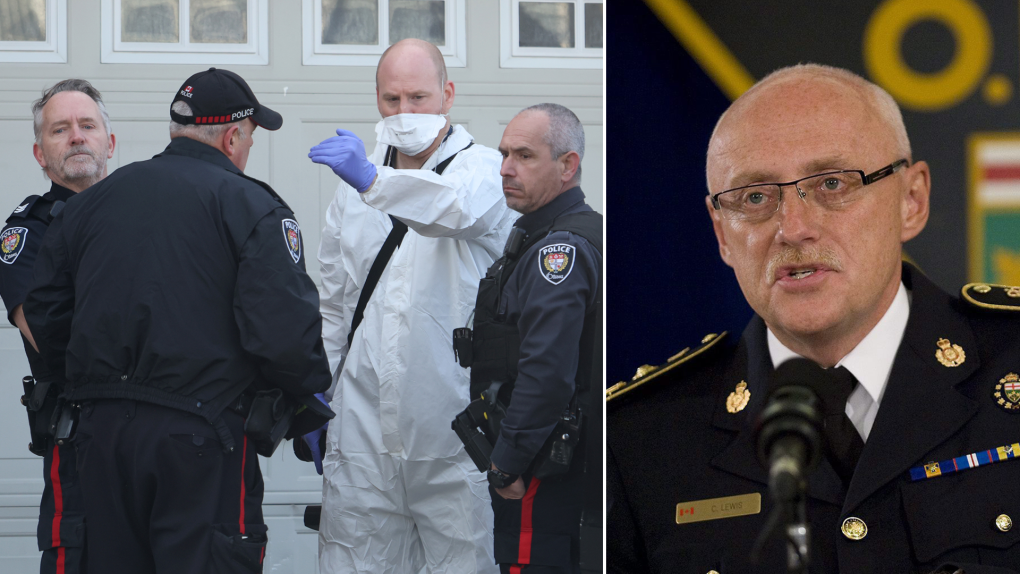Former OPP commissioner explains why information is slow to release after a major crime

In the hours and days after a major crime, the demand for information is tremendous. Journalists and the public have a multitude of questions that, often, only police can answer.
Police, however, are often tight-lipped and release details carefully and deliberately.
Former OPP commissioner and CTV public safety analyst Chris Lewis told Newstalk 580 CFRA’s Ottawa at Work with Patricia Boal that investigators and other police officials must keep a future trial in mind at all times.
“Ultimately, the suspect is alive, so they’re looking at a trial. They don’t want to say anything that they haven’t really nailed down as a fact, number one, because as investigations unfold, the police chief can’t know all the facts because they investigators don’t know all the facts yet,” he explained. “If you say anything that could jeopardize the case, it gets in the press, jurors hear it, and it becomes an issue in court.”
Lewis says ensuring that other witnesses who might not yet have spoken to investigators aren’t influenced by what’s released is important.
“If there are other witnesses, other people alive that they have to interview yet, they don’t want that evidence tainted by something that gets released. So, it’s the investigative process and then ultimately the trial that they’re very concerned about the integrity of,” he said.
Ottawa police have revealed some information about the recent mass killing in Barrhaven, including the names of the victims and the accused, and how the victims were killed. A motive, however, remains a mystery.
“Ultimately, there’s still a trial,” Lewis says. “They’ll want to be sure that the release of any of those facts doesn’t jeopardize that trial and the jury process. Defence attorneys have a heyday with that and a potentially guilty party can get off because some juror was tainted by hearing a fact that they shouldn’t have heard before the trial.”
Heavy toll on first responders
Lewis says this would have been an absolutely devastating scene for the first responders who responded Wednesday night.
“Initially, it would be absolutely devastating. Just mind-boggling what the emergency responders faced there last night,” he said. “Their lives are forever changed after seeing probably the worst mass murder in the history of the city of Ottawa.”
He said the public sometimes doesn’t always realize the toll these kinds of crime scenes can have on police, paramedics, and firefighters.
“The impact is significant. It really does take its toll and I think the average person underestimates how big that toll can be,” he said. “Sorting out the scene itself will horrify the people who were there for all eternity.”
Hearing about these incidents can affect everyone.
Anyone is in crisis can contact the Mental Health Crisis Line 24 hours a day, 7 days a week at 613-722-6914 or if outside Ottawa toll-free at 1-866-996-0991.
The Distress Centre of Ottawa offers 24/7 support, crisis intervention and education services to residents of the Champlain region at 613-238-3311 or toll-free at 1-866-996-0991. They can be found online at https://www.dcottawa.on.ca/
View original article here Source









